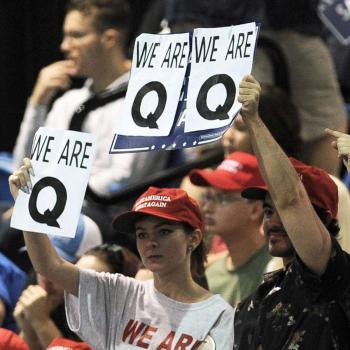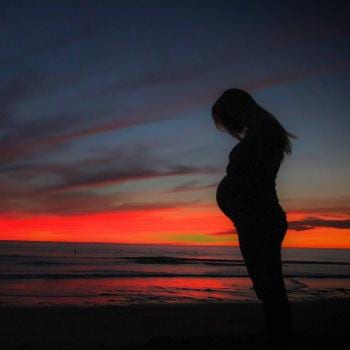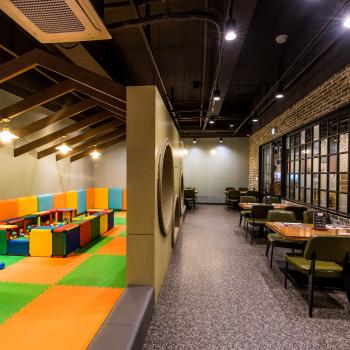When I got married, I had left behind my parents’ fundamentalism and evangelicalism, but I did not realize how many of their other beliefs, especially related to Quiverfull, I still retained. I believed that women should be allowed to choose their own beliefs and their husbands, but I had not yet fully embraced feminism. I could not fathom the idea of having a career and still planned to have eight or so children. I still saw daycare and public school as evils and planned to homeschool. I still believed that if I did not follow the Pearls’ parenting advice my children would be ruined and that I should not “do” teenagers.
When I got pregnant a few months after my marriage, I desperately hoped it would be a girl. An oldest daughter could help around the house, care for small children, cook meals, and babysit. An oldest daughter would be my right hand, a second mother to my many children. An oldest son, in contrast, would be next to useless. And so, I hoped for a girl and saw my baby as the first of many children to come. To an unhealthy extent, I saw my daughter as a cog rather than an individual.
My change of heart actually started with the Pearls. As I have narrated, I started out following the Pearls’ child rearing advice but realized when Sally was just shy of a year that there was something very wrong. I did some research on various child rearing methods, read some critiques of the Pearls, and read about attachment parenting and gentle discipline. I have to admit, this was life changing for me. I no longer saw myself as Sally’s absolute authority and no longer saw expecting absolute obedience from Sally as a worthy goal.
Rejecting the Pearls changed my life. When I consigned their advice to the trash can I was able to see my daughter as an individual rather than a cog. I was able to see my daughter as a person rather than simply clay to be shaped. Sally was no longer a rebellious child waiting to be pushed into a box of expectations; rather, she was a beautiful bud ready and waiting to bloom. As the way I viewed children – and my role as parent – changed, other things changed as well.
First, I was able to see having only two or three children, rather than the 8+ I had always imagined, as worthy and fulfilling. Rather than planning to have a flock of eight or ten children who would be molded to share my views and goals, who would be raised to be clones, I saw the value of having only a few children and investing in them as individuals and allowing them to develop as individuals and choose their own beliefs and life paths.
Second, I was able to see my children interacting with their peers away from my watchful eye and studying under teachers other than myself in public schools as beneficial rather than inherently problematic and dangerous. I no longer felt the need to completely control my children’s interactions and education.
In this way, seeing my daughter as a person rather than a potential clone and seeing myself as a guide rather than a dictator fundamentally changed not only how I parented but also allowed me to open myself to the idea of having a smaller number of children and sending them to public school. I am not saying that everyone who views parenting as I now do has only two or three children and sends them to public school, but rather that until my view of children and parenting changed I was not even able to consider these options. In other words, I wrote off a normal-sized family and public schooling without consideration because of how I had been taught to view children and parenting.
Finally and most importantly, as my perspectives changed the way I viewed my daughter was transformed. She became a little individual before my eyes, and I was surprised by the absolute beauty and joy I found. I no longer saw her as a potential homemaking and child rearing helper but rather as a person with her own needs, desires, and wants. Suddenly, parenting became an adventure rather than an epic contest between parent and child. I wouldn’t change what I have now for the world.
I don’t know if my mother or other mothers influenced by Quiverfull beliefs think of their children the way I did. Maybe I was alone in seeing my daughter as a potential helper and child raiser rather than simply as a little individual to be nurtured and guided. What I do know that in my case seeing my daughter as some sort of potential servant got in the way of seeing her as an individual. I am so thankful that I have left that all behind.














